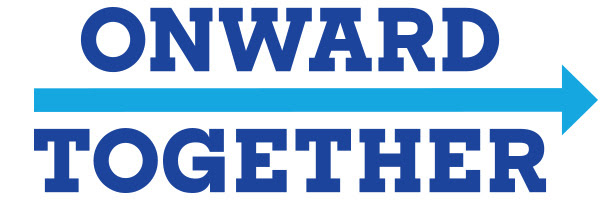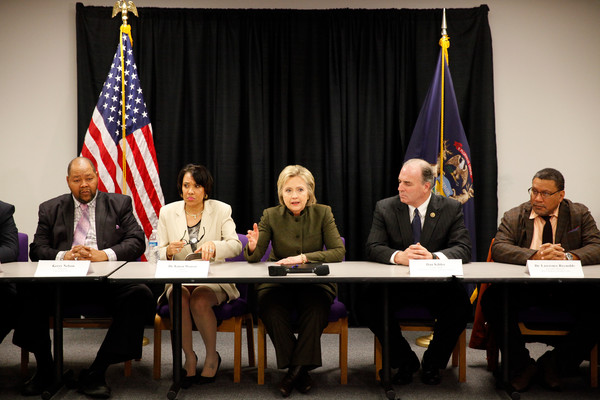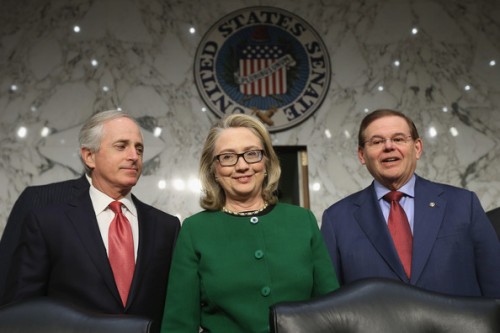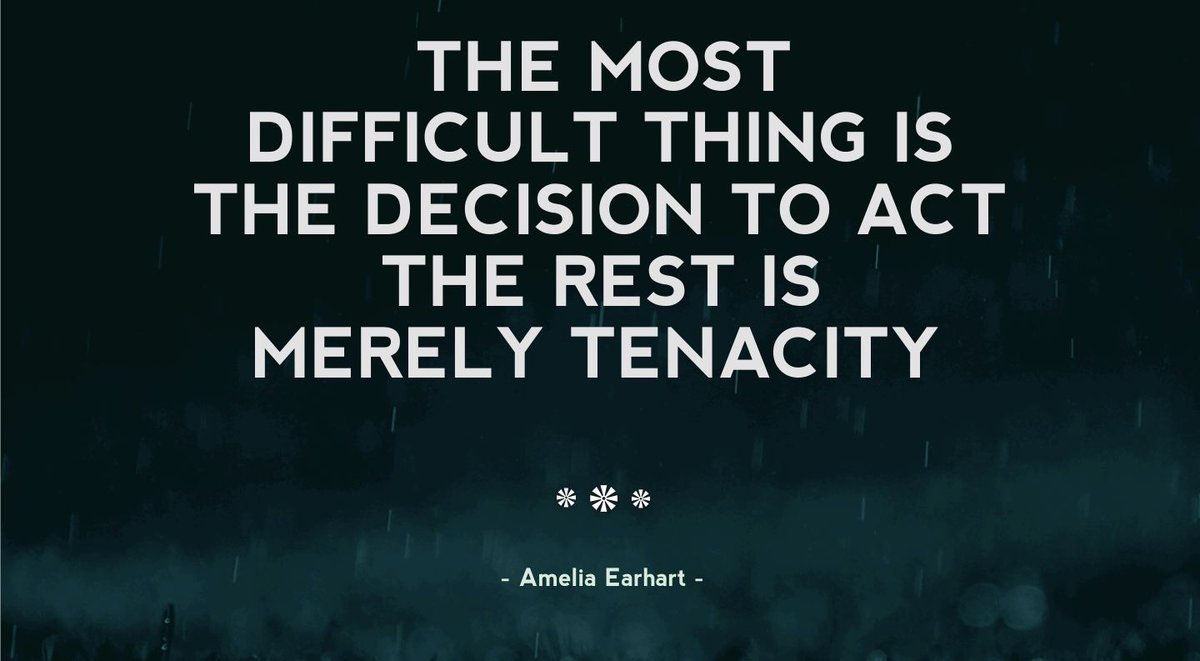The Secretary called her return to Foggy Bottom to close down her operations “bittersweet.” Indeed it is for those of us who have closely followed her tenure. Many will remember how, notified of the earthquake in Haiti, she cancelled a trip to Asia and flew back to D.C. from Hawaii three years ago. She was the first foreign official on the ground in Port-Au-Prince just days after the quake. On this third anniversary of the earthquake that devastated a country dear to Secretary Clinton’s heart, the State Department issued this amazing fact sheet of what her State Department has done to help.
U.S. Government Investments in Haiti’s Rebuilding and Renewal
Fact SheetOffice of the Haiti Special CoordinatorJanuary 11, 2013
In early 2009, Secretary of State Hillary Rodham Clinton made Haiti a foreign policy priority and committed to working to change the way we partnered with Haiti. For more than three and a half years, the U.S. Government (USG) has worked closely to be a good partner to the government and people of Haiti. After the devastating earthquake of 2010, the U.S. worked to support the Government of Haiti (GOH) and meet the most immediate life saving and life sustaining needs on the ground. For some time the U.S. pursued two tracks of engagement and has ensured that they complement one another: the first to address immediate humanitarian and emergency aid needs; and the second to continue to pursue a strategy to promote long-term sustainable development in Haiti.
Below is a high-level overview of some of the U.S. contributions to help Haiti on a path to economic prosperity and political stability.
Government Stability and Capacity Building: The United States and other donors supported the Government of Haiti’s free and fair presidential and legislative elections in late 2010 and early 2011. These elections paved the way for the complete re-establishment of all three branches of government. The U.S. provided capacity building support, including the provision of experts to work within the Government of Haiti and the provision of temporary office space. As a result, the Government of Haiti has been able to lead more effectively in many areas of governance, including efforts to: combat crime; prepare for emergency responses to Hurricanes Tomas, Tropical Storms Isaac and Sandy; collect taxes; increase transparency; alleviate housing shortages; promote foreign direct investments; and expand basic services for Haitians, including in education and health services.
Energy: Only 12 percent of the population has regular legal access to electricity. The Martelly Administration has made access to energy one of its priorities and views it as a necessary step in Haiti’s economic development.
- The U.S. Government, through USAID, is funding the services of an experienced management firm to help improve the commercial and operational sustainability of Haiti’s electric utility EDH. The firm is working with the utility to expand active customers by a third. Progress to date shows significant improvements in the utility’s financial performance and service delivery, having added over 20,000 households and business as active customers.
- The USG is helping to improve the reliability of electricity in Port-au-Prince through renovation of five electricity sub-stations. The project is expected to be complete by the end of February 2013.
- The USG commissioned a 10 mega-watt power plant in the north, contributing to reliable power for the tenants of the Caracol Industrial Park as well as houses around the park. The first households in the northern town of Caracol, which never had electricity before, were connected to the grid of the power plant in October 2012, designed to provide reliable power to residences and industry.
- The USG also launched a competitive tender in December 2012 [available online at www.FBO.gov] to design, build, and operate Haiti’s first industrial scale solar facility. This is part of an ongoing effort to work with Haitian partners to harness renewable energy opportunities.
Housing: The United States has worked to address immediate shelter needs, including the removal of rubble to make space for shelter, as well as the construction of permanent housing settlements.
- To date, the Government of Haiti, the international community, private firms, and individual households have removed approximately 7.4 million cubic meters of rubble, or 74 percent of the rubble created by the earthquake. The USG has removed one third of this total. USAID-funded programs helped some 65,700 households (roughly 328,000 individuals) find safer housing through the construction of temporary shelters (29,000), rental vouchers, and housing repairs (6,000).
- The United States is currently constructing two new settlements, with construction underway of 750 homes in the north near Caracol and 156 homes near Port-au-Prince in the Saint Marc region. The next five settlements of approximately 1,250 houses, where all engineering designs, environmental studies and water tests have been completed and tenders are due to be launched shortly, will be developed together with a diverse set of partners such as the Qatar Haiti Fund, the Inter-American Development Bank, and the American Red Cross, enabling the United States to leverage resources for greater impact.
Business and agricultural loans: Eighty percent of the credit available in Haiti is used by only ten percent of the borrowers.
- The United States has partnered with Haiti’s existing banks, credit unions, and other lenders to provide credit guarantees and help design new ways to lend to entrepreneurs and farmers.
- The United States has supported efforts to computerize data and processes for loan officers, in order to support approximately $21.7 million in loans disbursed to over 6,500 businesses.
Agriculture: With more than 60 percent of Haitians reliant on agriculture for income, the United States has expanded its support in the sector through its global food security initiative, Feed the Future.
- To date the United States has worked with more than 9,700 farmers, introducing improved seeds, fertilizer, and technologies.
- 2012 results include a 58 percent increase in rice yields, 341 percent increase in corn, 100 percent increase in bean yields, and 21 percent increase in plantain yields. Our goal is to increase incomes for 100,000 farmers in three geographical focus regions over five years.
- Additionally, Feed the Future just launched the bean planting season at a cost of another $1 million, which will provide farmers with seeds and other inputs.
Transformation of Haiti’s North: The United States is partnering with the Government of Haiti, the Inter-American Development Bank, and the private sector to create access to jobs, housing, electrification, transportation, and agricultural development in Haiti’s north. These types of investments, when married with the entrepreneurial spirit of the Haitian people, are helping to catalyze growth in the region. As part of this partnership, by 2015, the United States will have helped create:
- New housing settlements for over 13,000 people complete with electricity, water, social services, and job opportunities nearby;
- 15,000 new formal jobs at the Caracol Industrial Park, one of the Caribbean’s largest industrial parks, which is projected to grow to 20,000 jobs by 2016;
- Reliable electricity to up to 100,000 people and businesses that currently have none; and,
- Rehabilitated health clinics and reference hospitals in regional towns.
The first tenant of the Caracol Industrial Park, Sae-A, one of the largest garment manufacturers in the world, already has 1,300 employees, most of them women who have never had a formal sector job before. Many are graduates of a new, nearby vocational training center that the USG built and supports. Sae-A is on track to reach the goal of creating 20,000 jobs by 2016. A second tenant, a Haitian company, has moved in September of 2012 and a third tenant is due to start operations shortly. Additionally, a new U.S.-funded power plant opened this year to serve the industrial park and surrounding communities. Nine buildings, including factories, warehouses, and offices, have been built. At least twelve new buildings are scheduled for completion in 2013, more than doubling the industrial park’s capacity.
Health Services: Prior to the earthquake, the United States was providing access to health care for approximately 50 percent of the Haitian population; after the earthquake, the United States has been able to maintain this level of care. The United States provides a basic package of health services (primarily maternal and child health) and more sophisticated HIV/AIDS prevention and treatment services.
- The Haitian Ministry of Health and Population is working to achieve a sustainable network of health facilities. To help them realize this goal, the United States entered into the Health Partnership Framework with the Haitian government, which promotes sustainability by emphasizing country ownership and leadership, and includes a five-year plan that encompasses contributions of the government, civil society, the private sector, and other donors.
- The United States supports 251 primary care and 52 secondary care sites nationwide.
- The United States increased the number of eligible patients on anti-retroviral (ARV) treatment from 60 percent in March 2012 to 65 percent in June 2012. We are working with the Global Fund to Fight HIV/AIDS, tuberculosis, and malaria to reach universal coverage of ARVs for all eligible patients by June 2015.
- The United States recently convened the two largest umbrella networks of disabled people organizations to coordinate a single national strategy and move forward with plans to strengthen local advocacy groups. In addition, work is underway to establish four to six disabled service centers nationwide and to build government capacity to promote inclusion of people with disabilities in policy and legislation.
- Through June 2012, the United States provided expertise and more than $95 million during the emergency phase of the cholera response.
Education: President Martelly has identified free and universal education as one of the key priorities of his administration.
- Since January 2010, the United States has constructed more than 600 semi-permanent furnished classrooms and provided teaching and learning kits enabling more than 60,000 children and 1,200 teachers to return to school.
- Over the next two years, the United States will partner with the Haitian Ministry of Education to develop and test an instructional model in over 300 schools, reaching 28,000 students, and training 900 teachers.
Improving Access to Justice and Legal Assistance: The rule of law, as supported by justice and security institutions, is a basic foundation of citizen security and economic growth. The United States is committed to supporting a responsive, just, and effective Government in Haiti. Our efforts include:
- Supporting the formation of the Superior Judicial Council (CSJP), a new body which will provide oversight of the judiciary – a major step towards judicial independence in Haiti;
- Providing legal assistance to over 2,700 individuals in Cite Soleil, Martissant, Saint-Marc, and Petit-Goave since October 2011;
- Renovating corrections facilities; and
- Providing equipment and technical assistance to reduce pre-trial detention and improve case management in targeted jurisdictions.
Strengthening the Security Sector: The Haitian National Police (HNP) is Haiti’s sole indigenous security force. Improving and expanding the capacity of the HNP is critical to the Government of Haiti’s ability to maintain public order and protect vulnerable populations.
- The United States is supporting the recruitment and training of new officers, bolstering the counternarcotics unit, and providing communications equipment.
- The UN Stabilization Mission in Haiti (MINUSTAH) also helps promote a secure and stable environment in Haiti. U.S. support includes 100 UN police officers, 10 corrections officers, and nine military officers seconded to MINUSTAH.
Protecting Human Rights and Vulnerable Populations: Increasing protection of human rights and vulnerable populations is key to U.S. assistance in Haiti. The United States is funding a number of initiatives to provide services to victims of abuse, and empower vulnerable populations. Efforts include:
- Supporting economic opportunities for women and survivors of sexual violence through microcredit and short-term jobs programs; and
- Providing job skills training, health services, and reintegration and repatriation assistance to Haitian migrants.






































